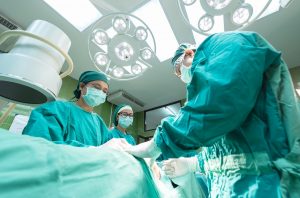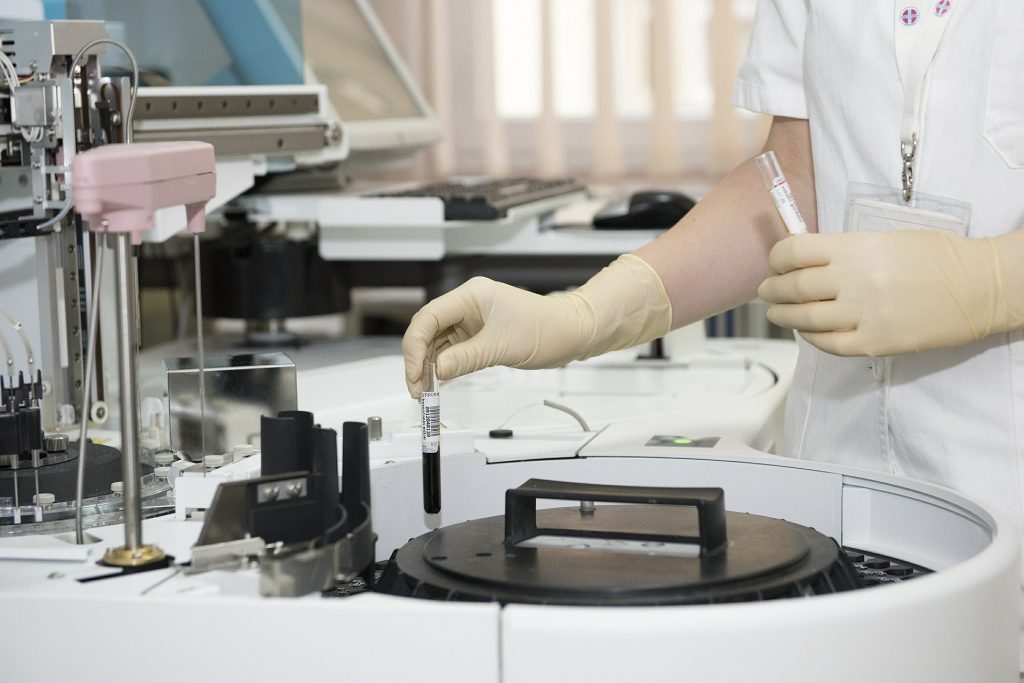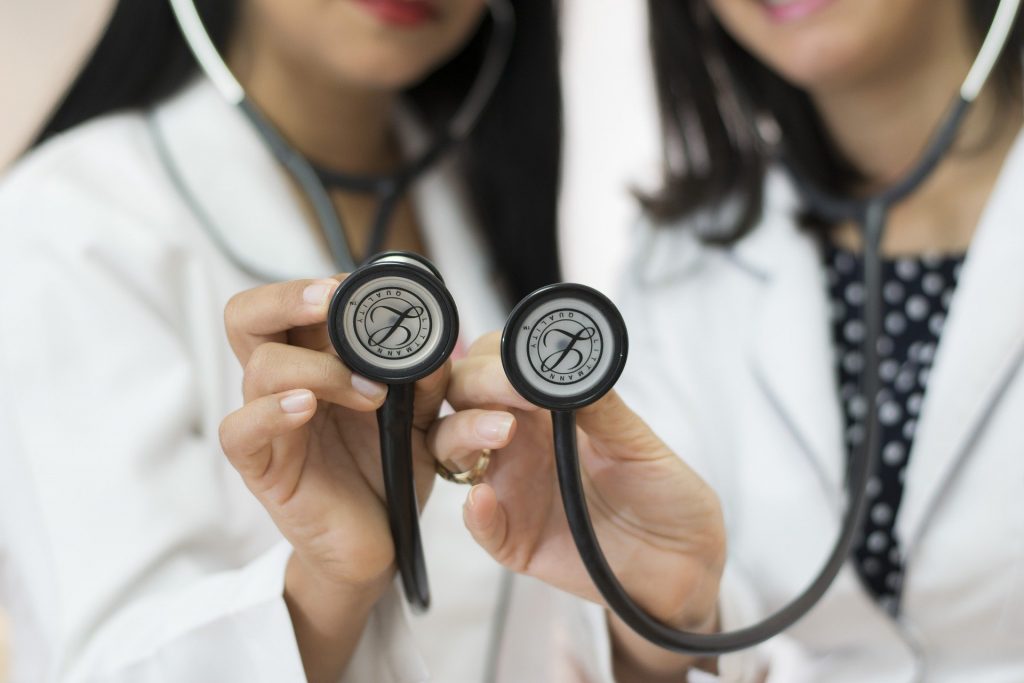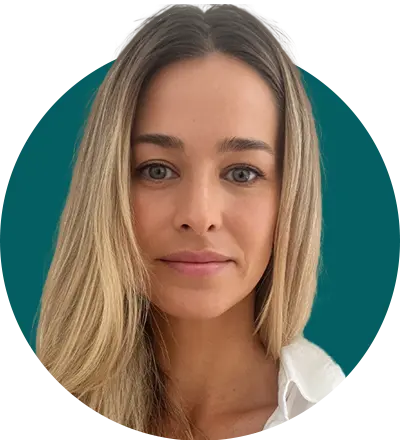Donating your body to medical science is a unique gift that will help with the advancement of medicine and science in Australia and will benefit generations to come.
Depending on the program, the donated body can either be used for medical research or training. Through institutions like universities and other research organisations, body donation programs help to train the next generation of doctors, nurses, medical scientists and other health professionals.
Deciding whether to become a body donor is something that requires significant consideration to ensure you understand the emotional impact on yourself and your family.
This complete guide to donating your body to science explains everything you need to know about donating your body to medical science.

1. How many bodies are donated to science each year?
Australia-wide, only a tiny fraction of registrations, estimated at fewer than 2,000 Australians, donate their bodies to science each year.
2. Reasons to donate your body to science.
Many people regard donating their body to science as a way to contribute to society once they have died, through assisting with medical research and training.
Body donation can help train doctors, surgeons, medical scientists and other health-related professionals, and provide medical students with the best possible education and training. It can also facilitate medical and scientific research, with the potential to contribute to important health discoveries that can alleviate suffering and improve community wellbeing.
Though research is the primary motivator for most, it also has the benefit of eliminating funeral costs for the family after death as the university will normally pay for a simple cremation once it has finished studying the body.

3. Who can donate their body to science?
Each program will have specific aims and requirements for donation, so your first step is to read about the program and check that you are eligible. Donors generally must be at least 18 years of age but there is not usually an upper age limit.
However, there are certain circumstances and medical conditions which may preclude some universities from accepting a human body for donation. A number of conditions may automatically exclude you from a program, including:
- Infectious diseases or medical conditions such as AIDS, hepatitis, Ebola, yellow fever, tuberculosis, etc;
- Other conditions which may be identified as a health or safety risk to staff and students;
- Conditions that can affect abdominal organ function, including Alzheimer’s or dementia. (However donations to a brain bank for research may be made separately to body donation programs. See section 9 below);
- Being clinically obese or emaciated.
Some universities won't accept body donations if the deceased resided in the UK between 1980 and 1996 for six months or more, or if they have received a blood transfusion in the UK since 1 January 1980.
Since 25 July 2022, the University of Queensland exclusion policy pertaining to anyone who spent a cumulative total of 6 months or more in the UK between 1 January 1980 to 31 December 1996 has been lifted within the Body Donor Program.
Even if your registration is accepted, the university or institution cannot guarantee it will accept your body at the time of death, as circumstances can change significantly. Conditions may arise which could prevent acceptance of the body donation, including:
- Recent unhealed surgical wounds, or disease such as gangrene;
- If the donor’s family objects to the donation at the time of death;
- A significant amount of time between the time of death and notifying the university;
- Insufficient space within the anatomy facility;
- University facilities at capacity;
- Death in a location outside the institution’s catchment area;
- Death during Christmas and New Year closure;
- Other unforeseen circumstances, for example the coronavirus pandemic.
4. What happens when you donate your body to medical science?
Assuming you have made the necessary arrangements to donate your body to science, your executor or Next of Kin will need to notify the university or its contracted funeral director as soon as possible after death. Depending on the place of death, the university will arrange to collect the body.
Once the body has been delivered to the university it will be tested for a range of diseases, including hepatitis, HIV and tuberculosis. If the tests turn a positive reading on any disqualifying diseases, the body will not be eligible for donation. If it is accepted, there is normally no further contact with relatives.
The use of the body will then depend on the needs of the university, but the most common use of a body donation is by students learning about human anatomy. Sometimes particular tissues may also be preserved for later study or research. Your remains will be treated with dignity, respect and anonymity through its use in medical and scientific research or training.
Following your death, the family may like to hold a memorial service. While your body will not be there, a memorial allows family and friends the opportunity to gather and celebrate your life. You can read our article on alternatives to a traditional funeral service for some ideas on planning a memorial.
The university may retain your body for up to eight years, at which time your body will be cremated. If your cremated remains are being returned to the family following the research period, they might like to consider an ashes scattering ceremony.
5. Are there costs involved with donating your body to science?
The use of your body for science or medical research is a donation. The university will generally meet all relevant expenses associated with your body donation and will also be responsible for a simple burial or cremation (as indicated by your preference on the consent forms). Institutions do not cover the cost of funeral or memorial services, urns or the collection of ashes from the cemetery. They may pass on some fees to the family or estate for items like a death certificate.
The ashes will usually be returned to your Next of Kin or family member.
The university will not accept costs for death notices in newspapers or costs of private memorialisation – including plaques in cemetery or crematorium gardens. If you request an alternative crematorium or cemetery, the costs will need to be met by your family or estate, including transportation to a funeral home.
However, if your donation is not acceptable for any reason, no financial obligation can be accepted by the university. Your family will be responsible for transportation costs associated with the return of the body as well as the associated costs of any funeral arrangements.

6. How to donate your body to science in Australia.
In Australia, there is no single register for body donation, as is the case for organ donation. There are a number of universities and research organisations across Australia that you can donate your body or certain tissues to. You will need to contact the institution directly to apply.
Below is a list of universities across Australia, with links to their body donation programs:
Body donation Sydney
- Macquarie University: 02 9812 3543
- University of NSW: 02 9385 2480
- University of Sydney: 02 9351 9457
- University of Technology Sydney: 02 9514 9703
- University of Wollongong: 02 4221 3800
- University of New England Armidale: 02 6773 3087
Body donation Melbourne
University of Melbourne: 03 8344 5809
Body donation Brisbane
- Griffith University: 07 5552 7700
- James Cook University: 07 4781 5022
- QUT: 07 3138 6944
- University of Queensland: 07 3365 2702
Body donation Canberra
Australian National University: 0405 654 310
Body donation Perth
University of Western Australia: 08 6488 3288
Body donation Adelaide
University of Adelaide: 08 8303 5998
Body donation Tasmania
University of Tasmania: 1800 792 661
The university can only accept your body if you have previously completed and signed the donor offer forms. It is not possible for your family to donate your body on your behalf. The exact process you will need to follow to donate your body to science will differ depending on the university or organisation, but generally the process will be as follows:
- If you are eligible to become a donor you will need to contact the donor program co-ordinator.
- You and your family (or the executor of your will) will need to fill in donor consent forms and return them.
- Once the university has received the correctly completed donor offer forms and they satisfy the acceptance requirements you will be sent a confirmation and a donor card.
- Your details will be held in a confidential file at the university.
Donating your body to science is not only a personal decision; it is one that will affect your whole family. It’s important to involve your close family and discuss with them your intentions to donate your body. This matter can be very distressing for them if they only find out about your body donation when you die.
If your family is aware of your bequest before death, they will have more time to prepare and will be more likely to honour your wish. It’s also a good idea to inform your doctor, nursing home administrator and any other relevant people or caregivers of your bequest to donate your body to science.
7. Can I change my mind about body donation?
You may withdraw your bequest at any time by notifying the university. Ultimately, your Next of Kin can object to your body being donated and will have the final say after you pass away.
8. Can I be an organ donor and donate my body to science?
Body donation is different from organ donation. When donating your body to science the whole body is used, however only a single part of the body is required for organ donation.
Organ donors can usually register for a body donation program as well, but if organs have been removed, the body will be rejected for donation to science. If you are already registered as an organ donor you can remain registered as your donation may save another person’s life. Participation in a body donor program does not require you to withdraw from registering with the Australian Organ Donor Register. Whilst you may be registered in both programs, there is no guarantee that you would be required by either program when the time comes.
You can register for organ donation through the Australian Organ Donor Register or through your existing myGov account. To find out more or become a registered brain tissue donor, contact your nearest Australian Brain Bank below.
9. Donating your brain to dementia research.
People with dementia are not be able to donate their bodies to science, however they can donate their brains for medical research into the disease. Progress can be made towards finding the cause of Alzheimer’s disease and other dementias if researchers can compare these with normal brains as well – so all types of brains are needed.
To find out more or become a registered brain tissue donor, contact your
nearest Australian Brain Bank listed below:
New South Wales and ACT brain donation
- University of Sydney Brain Bank: call 02 9399 1707 or email [email protected]
- NSW Brain Tissue Resource Centre: call 02 9351 6143 or email [email protected]
South Australia and NT brain donation bank
Flinders University: call 08 8204 4393 or email [email protected]
As of 2021, The South Australian Brain Bank (SABB) is no longer accepting donations.
Victoria brain donation bank
The Florey Institute of Neuroscience and Mental Health: call 03 8344 1900 or email [email protected]
Tasmania brain donation bank
University of Tasmania: call 1800 792 661 or email: [email protected]
Western Australia brain donation bank
WA Health: call 08 9224 2925 or email: [email protected]
More information on brain donation is also available at Dementia Australia or calling the National Dementia Helpline on 1800 100 500.
10. Final thoughts on body donation.
Donating your body to science can be an invaluable contribution in supporting the next generation of doctors, nurses and medical staff. It can also help to advance science and medicine through research, in a way that cannot be done in the absence of body donation.
We hope you find this guide on how to donate your body to science helpful. As mentioned earlier, it is really important to let your family know of your wishes if you decide to become a body donor.
Donating your body to science is a generous act, though families may still wish for a personal farewell. If you’re arranging a service or seeking guidance, we support families across Australia, including the people of Sydney and Wollongong, with simple and dignified funeral services such as direct cremation when body donation isn’t possible.
If you have any further questions or to get a quote for a cremation head to our Funeral Services page or call 1800 071 176.





.jpg)

